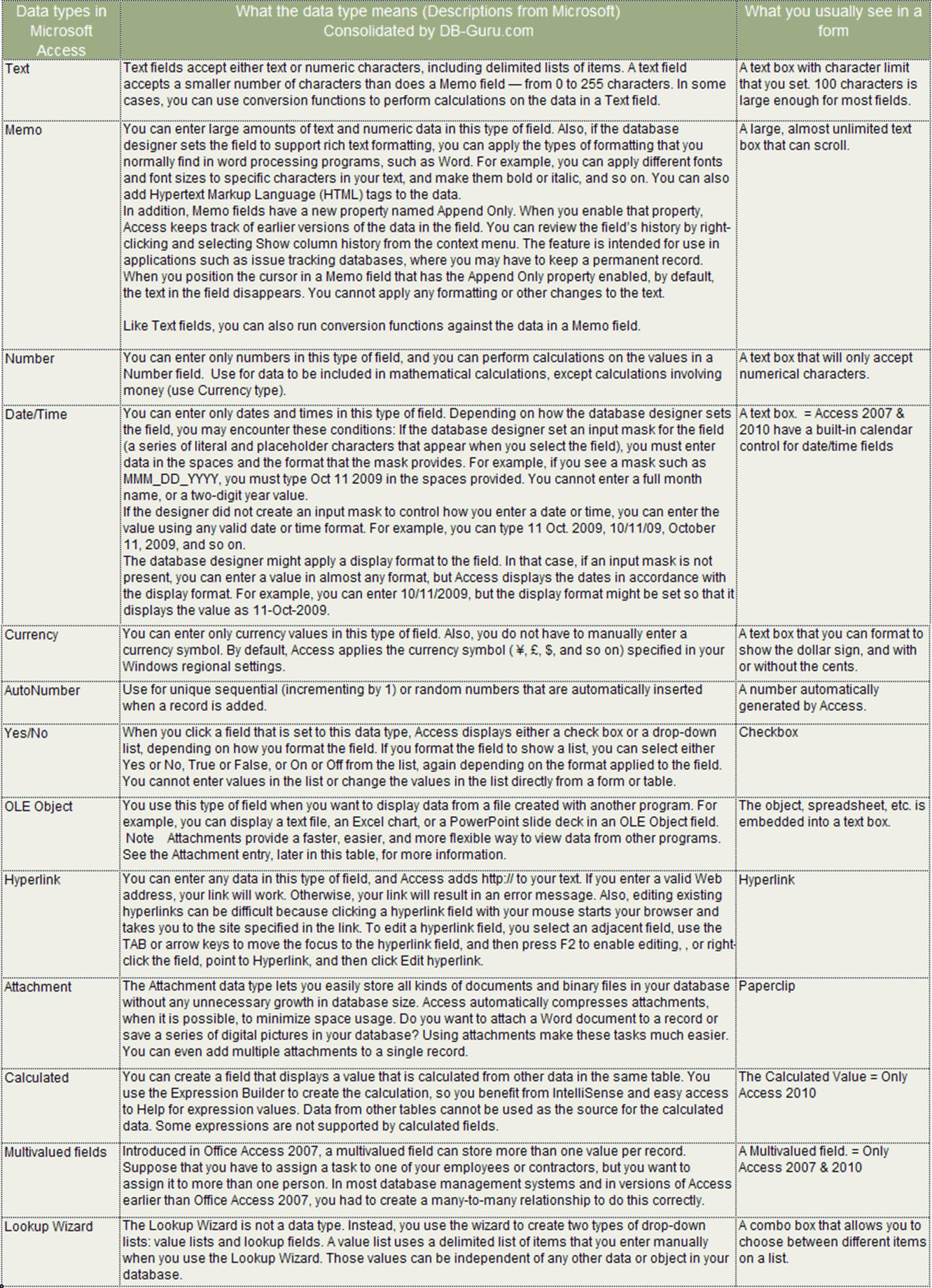Microsoft Access Data Types
Depending on what type of data you require in your database there are several different types to choose from as shown in the table below.

Return to Microsoft Access
Programmer
Resources